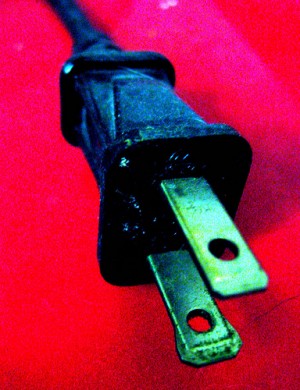Some Key Arguments For–And Against–Making PSNH Sell Its Generating Facilities
One of the big issues in the New Hampshire business community this legislative session is the push to continue deregulating utilities. The state’s current power regulation model is something of a hybrid between old-fashioned regulation and deregulation. The idea is, there are regulated utility companies (like PSNH, which the Public Utilities Commission reports serves 70 percent of the state’s “retail customers”)…but customers aren’t forced to use it. With some deregulation going into effect about 10 years ago, customers were allowed to shop around for cheaper rates from other, unregulated electric providers.
Now, HB 1238 would move toward completing the process of deregulation by making PSNH sell off all its generating assets–“fossil, hydro, and biomass”–by the end of next year. While the committee hearing for the bill took place on Thursday, February 2, the House Science, Technology, and Energy Committee is holding an executive session tomorrow at 10:00 am. Given the complicated nature of this issue, we decided to highlight some of the arguments for–and against–continued deregulation.
This afternoon, the Conservation Law Foundation (a group that is, incidentally, a well-known opponent of Northern Pass, a partnership of which PSNH is a part), emailed their arguments in favor of HB 1238 to various media outlets. In the message, CLF attorney Christophe Courchesne wrote:
- “Per the attached PSNH filing (PSNH Projected 2012 Capacity Factors, Docket No. DE
elycefeliz / Flickr
The CLF argues the utility's generating facilities actually cost ratepayers more money
11-215), PSNH is predicting that Merrimack Station’s two units will operate at less than 50% of their capacity this year. The two coal-fired units at Schiller will operate at about 25% of their capacity. Newington will operate at 4% capacity. For about six full months of 2012 (indicated as months with a 0% capacity factor), PSNH ratepayers will be paying PSNH for all the fixed costs of its fossil-fuel fired power plant fleet, plus a return on the book value of that fleet, while it sits completely idle and provides no power to ratepayers whatsoever. During this time, PSNH ratepayers also have to pay PSNH to buy replacement power from the market for 100% of their needs.
- The attached data response in Docket No. DE 10-261 shows that in 2010, PSNH ratepayers subsidized other New England ratepayers for 1,766 hours when PSNH ran its more expensive plants beyond its customers’ needs, and collected less than its costs from those sales. The data response confirms that this forced subsidy was a function of the uneconomic and outdated operating characteristics of these facilities.
- As reflected in the attached chart, with the scrubber factored into PSNH rates, PSNH ratepayers will be paying the highest rates for energy service in New Hampshire, by far.”
In a previous email Courchesne sent to committee leadership, he wrote:
“Schiller Station is losing money and will lose money for the foreseeable future. Based on a report prepared by Synapse Energy Economics, CLF submitted testimony to the NH PUC in July that shows that Schiller’s net revenue will be negative by at least $10 million every year over the next ten years, totaling a negative $147 million over ten years. Changing assumptions about natural gas prices and other variables does not alter the conclusion that Schiller will have substantial negative cash flow over the period. (http://www.puc.nh.gov/Regulatory/Docketbk/2010/10-261.html, CLF testimony and exhibit dated 7/27/11)
- Last week, PSNH projected in a discovery response to PUC staff (attached) that its supposed flagship in which it has invested so heavily – Merrimack Station – may not operate for five months this year because it will be uneconomic to incur the costs of running the plant. (See attached chart – note the dashes showing the months for which no fuel cost is estimated.)”
Meanwhile, in a recent media release, PSNH outlined its opposition to the bill:
“’PSNH customers have saved more than $700 million over the last decade because our energy was priced below the market price for most of that time,’ said [Terry] Large, [PSNH Director – Business Planning and Customer Support Services]. ‘A question for the Legislature is: ‘is it in the best interest of consumers to eliminate their ability to choose, and instead rely solely on a market that is driven mainly by a single fuel, natural gas, which historically has experienced significant price volatility?’’
In his testimony to the House Science, Technology and Energy Committee, Large also testified that a forced sale will likely create ‘stranded costs’ that will be recovered from all PSNH customers. Simply put, a stranded cost would be the difference between the sale price and value of the plants that PSNH is eligible to recover. Large noted that the energy market is currently depressed due to the economic recession and abnormally low natural gas prices; factors that may depress the sale price of the power plants in the near term.
A forced sale at this time could result in significant stranded costs, and the loss of jobs and local taxes if the plants were shutdown.”
In other words, there’s good fodder for conversation during tomorrow’s executive session.
Meanwhile, if you’d like to cram for the big event, or just want to see what the Conservation Law Foundation is referring to, we’ve the documents they sent along embedded below.




